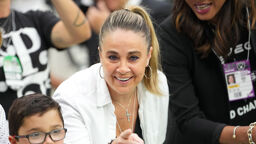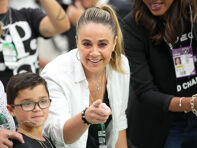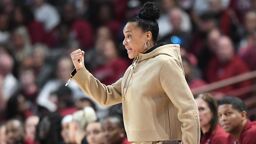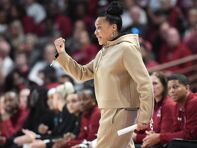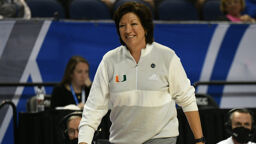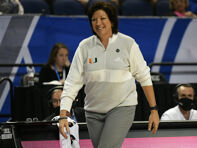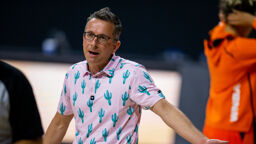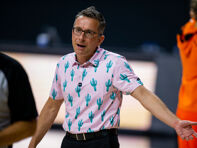When Neil Virtue stood in front of the crowd at the 2018 NCAA convention, he had already been out in his role of swim coach at Mills College for over a decade.
Still, sharing his identity as an LGBTQ person in front of hundreds was a daunting proposition.
“I had some anxiety about it,” Virtue told Outsports. “Framing it in a personal light, saying I’m a coach, I’m a brother, I’m gay, I’m a drummer, I’m a swimmer, sort of throwing it out there as one part of who I am. I’d never done it in that type of public way. It was a big deal for me, and it was really powerful and empowering to be able to stand up there and represent my truth.”
That’s how Virtue prefers to share his identity as a gay man: casually, conversationally.
“My whole M.O. is to make it a non-issue,” he said. So making a big speech about it was out of his comfort zone. Yet as the working-group chair of the NCAA’s OneTeam program — designed to educate and inform people in Division III athletic departments about LGBTQ inclusion — sharing his personal story was part of the journey.
In the first year of the initiative about 1,800 people have experienced the OneTeam program in several dozen athletic departments, spanning just six months (thanks in part to the COVID-19 pandemic). Virtue acknowledges that every step is progress, but still he’d like to see that number go up a lot faster. There are currently 442 schools with NCAA Division III athletic programs.
“It’s got to be continually advocated or pushed for all the time. It’s been good work, but it would be great if it could be done a lot more.”
There is no charge to the school for the program, other than the travel costs of the facilitator. With over 50 facilitators across the country, most schools are within a drive of one of them. While there are no facilitators located in the Plain States, there are also very few Division III schools in that area of the country. Still, for a plane ticket, a Lyft and a hotel room they can host the program.
Plus, Virtue and the OneTeam team are exploring virtual trainings, which wouldn’t involve more travel than a stroll from the kitchen to the living room.
The facilitated in-person program lasts about two hours, and Virtue admits that’s only enough time to scratch the surface. Yet the conversations it generates are important first or next steps (depending on the school) for any athletic department. Key to those two hours are talking about intersectional identities, problematic and helpful language in and around athletics, and highlighting LGBTQ voices within that athletic department.
For a review of the OneTeam experience at one Division III school — Kenyon College in Ohio — check out this Outsports article by Ken Schultz from last autumn.
The people running the program are still figuring out what exactly the virtual program might look like headed into the 2020-21 school year.
Even if it has been interrupted by the pandemic, Virtue said he’s proud to be part of the trailblazing effort. Sports bring people together, and Virtue has found that people across NCAA Division III athletics to be ready, willing and able to have these conversations about LGBTQ inclusion.
“When the NCAA decides to do something like this, they can become a powerful machine.”



